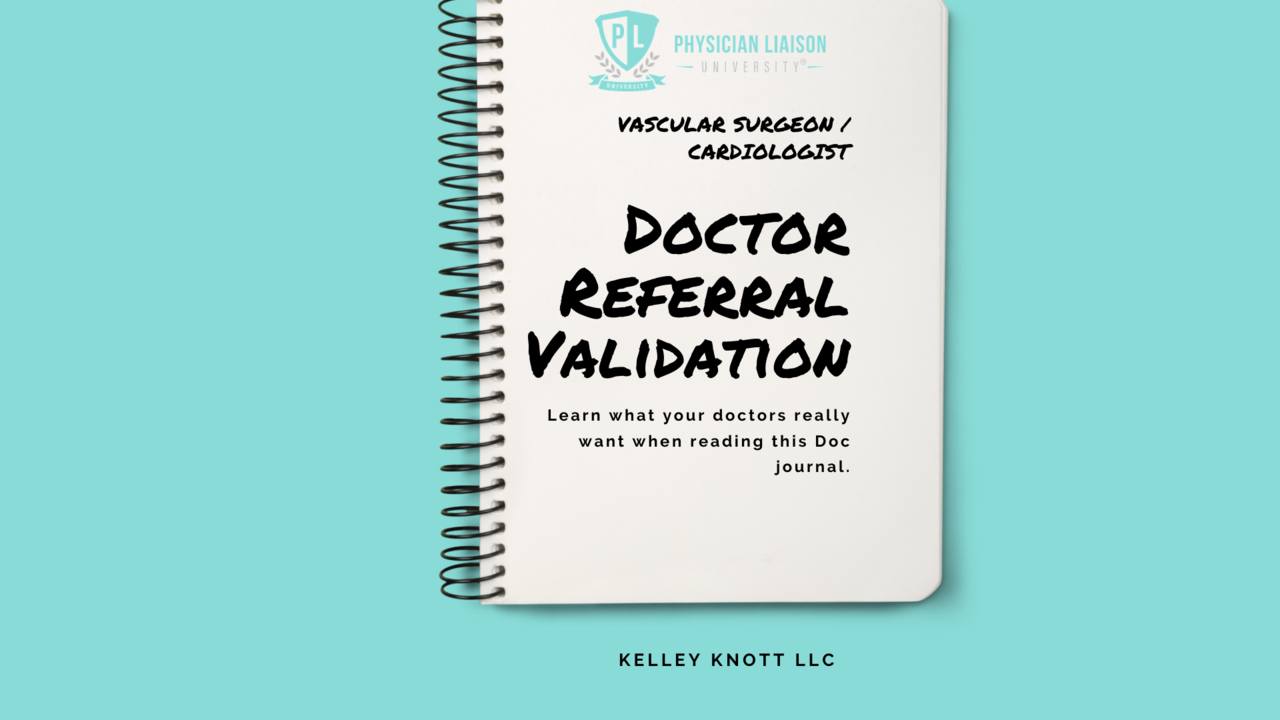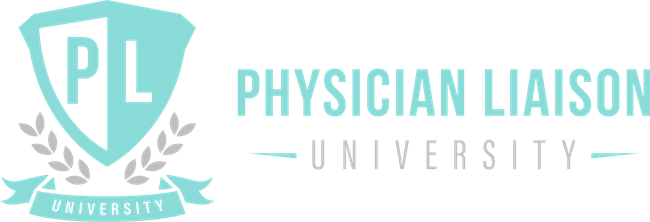Vascular Surgeon & Cardiology

We conducted validation interviews with doctors to find out their feedback and thoughts regarding Physician Liaisons. They provided insightful responses that will surely help better our services and what we can do for their practices.
Here are the questions that were asked:
1. What are the top specialties you refer out to most (ortho, OBGYN, Pain, ENT, etc), and for what (conditions/symptoms/treatment)?
2. Besides excellent patient care, when referring to a physician, what factors help you make that decision to send to that physician or practice? (examples: cell phone number, them meeting, you face to face, location, etc)
3. Is there something a physician liaison or medical rep that stands out to you in a positive or negative way, and why?
4. If a physician liaison comes to your practice to discuss building a patient-referring relationship between you and their specialists, what can they say/ do that would provide value for you or your staff?
5. What is the greatest value a physician liaison would be able to provide to your practice?
Written Validation Interviews:
Dr. Erica M.
1. Podiatry, rehab, cardiology
2. Expeditious care, appropriate care, ability to get feedback/support immediately when in a crisis.
3. NOT condescending treats women the same as men, available and responsive to phone/text. Always responds back.
4. I can't stand pushy salespeople- so if they are pushy they get blocked. They are willing to work within the confines of our limited time frame. They respect the staff and value our time.
Dr. Jasdeep D.
1. Pulm, Cardiac surgery, GI
2. Known doc, sometimes the personal connection
3. Not really. If they are helpful then it is positive
4. Provide preprinted pads, cell phone numbers, and referral coordinator phone numbers
5. Coordination of care between doctors and patients
Dr. Allen A.
1. As a cardiologist (consultant) I do not refer out very much. When I do my estimate is that 1/2 are to pulmonary medicine. This is because symptoms for a heart-lung disease can overlap and I might discover lung disease during my cardiac workup. For patients who refer themselves #2 would be a referral to primary care to get established if they don’t have a primary care provider. After that, referrals to other specialties such as Endocrinology (for diabetes or thyroid Dz) and Rheumatology (vasculitis and autoimmune diseases) are less frequent for me.
2. As with most things, a reputation for excellent patient care is most important. After that a personal connection with another physician would be #2 and accessibility (patient preference or convenience) would be #3.
3. Professionalism, kindness, and courtesy always stand out in a positive way. Pushing is never good, so a strategy of multiple calls/emails doesn’t work.
4. Presenting data that demonstrates how the relationship would add value to patient care and then offering to help facilitate contact if desired. It can be a subtle difference in messaging, but consider the following examples which don’t work:
When would be a good time...
I’d like to set up...
How about “x” time and day...
What “x” time and day work well for you...
They don’t work for me because my schedule is ever-changing based upon patient needs, practice demands, family, and etc.
A simple offer such as, “If you would like or are interested, I would be happy to facilitate a meeting or simply provide contact information,” would be much more likely to get me to reach out to or connect with another provider.
5. By being a helpful resource. What does being a “resource” mean? Value has many forms in patient care, but mechanisms to improve convenience, lower cost, and etc. are good ways to get a physician to listen to what you have to say (think about patient assistance programs which make it either a) less costly for a patient or b) more convenient for the patient and/or provider). Supplying data/studies/research that is relevant is also a way to be a helpful resource, but don’t present or “sell” the data. Just provide it and offer to answer questions if/when they arise.
As a parting note, medicine is a very different industry than almost any other. However, it’s still all about people and relationships. Liaisons I have worked well with are good people who either offer great products or great solutions. They don’t have to sell anything!
Dr. Satish G.
1. * Wound care – nonhealing ulcers
* Endocrinologist – Diabetes
* Ortho/spine – arthritis / chronic low back pain
2. * Availability
* Positive patient feedback
* Ease of contact (cell phone or otherwise)
3. Liaison should be an effective conduit between physicians and facilitate the feedback loop
4. Provide their cell phone to our staff and ensure a seamless patient care transition and facilitate easy transfer of records back and forth; ability to facilitate a fairly early consultation time when required.
5. Facilitating quick, easy, and effective mutual communication
Dr. Britt T.
Dr. Jeremy S.
1. Cardiology
2. Personal relationship. Knowledge of practitioner’s ability and customer service. Approachability
3. Yes, if they are knowledgeable about what challenges my practice is facing and they bring data to support why referrals should go their way instead of where they r going now. Negative: not being prepared, not doing research on my practice
4. Feedback and case scenarios on positive-negative relationship encounters as examples. Propose a mutually beneficial arrangement, make an introduction and allow both parties to discuss how to start a relationship and how to best make it fruitful
5. Provide market data, understand where I can grow referrals from which referring physician, and help us understand why this referral isn’t sending patients out way
Dr. Arthur O.
1. Given that I am a specialist myself, I regularly am not making a large number of referrals. But for the ones I do, the most are GI, vascular, primary care, GU.
2. Location, ability to coordinate with me
3. No way in particular
4. how me the credentials and patient surveys of the specialists
5. Not sure, but open to listening
Dr. George N.
1. Primary care - primary care
Pulmonology - dyspnea, OSA, COPD, Kung masses
Endo - DM
Urol - prostatism, hematuria
Renal - CKD
Heme - anemia, CBC abnormalities
GI - CP, reflux, anemia need for endoscopy
Pain - leg pain
Ortho - eval for THA,
Neuro - weird stuff
CV surgery - for various bypasses, valve replacement or repair
2. Communication, availability, accessibility, passion for care
3. Respect for time, knowledge base
4. Zero
5. Marketing probably
Dr. Tarick A.
1. Cardiology for Peripheral Arterial Disease
Neurology for Nerve conduction studies
Pain Management for chronic pain
2. Cell phone number and location
3. A representative that is respectful and can show patient satisfaction in the product or with the referral. A liaison that will get patients in a timely manner.
4. Detail process for patients to be seen in a timely fashion. Detail doctors skills
5. A liaison that will educate me on their doctor's skills and the office protocol to see patients in a timely manner.

